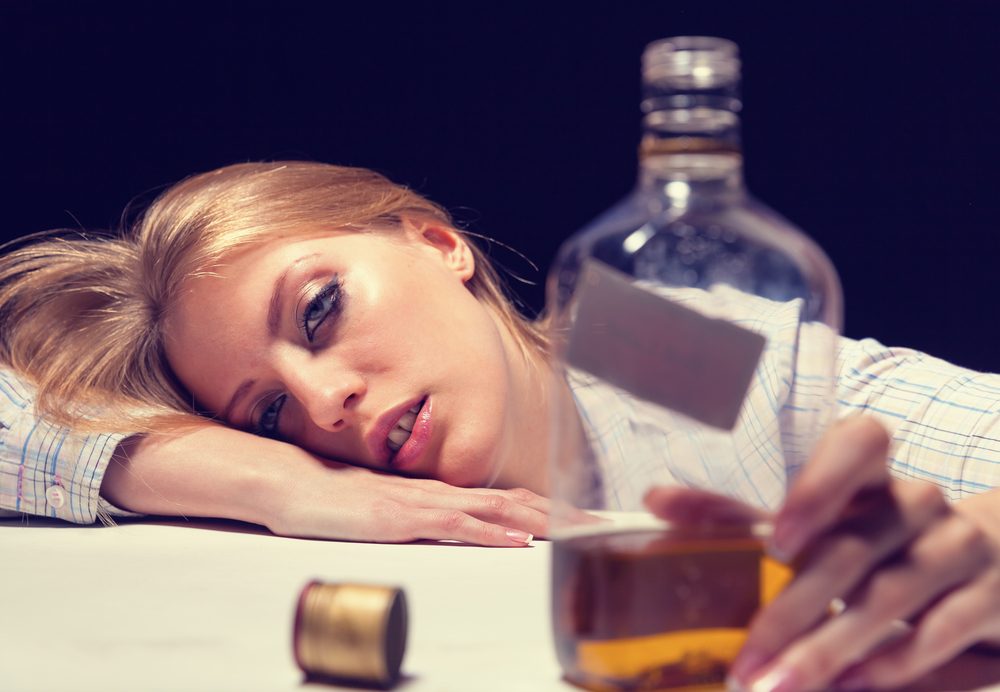Published on January 19th 2015, By microfinancemonitor.com Two independent studies have proved that alcohol is no solution to induce sleep but actually disrupts sleep later in the night. And poor sleep in turn leads to alcohol and drug addiction, says another study. Less hours of sleep leads to binge drinking, driving under the influence and risky sexual behaviour, says a study, stressing that the association is profound in younger population. “Among normal adults, sleep difficulties and insomnia have predicted onset of alcohol use one year later, and increased risk of any illicit drug use disorder and nicotine dependence 3.5 years later,” said Maria M. Wong, professor at Idaho State University. Wong and her co-authors analysed data collected from 6,504 adolescents, 52 percent of them girls and 48 percent boys to predict drug addiction habits later on in life. The consequences of sleep difficulty and sleep insufficiency when added to use of alcohol or other substances can impact both medical and behavioural areas, they said. “This study has added to the existing literature by establishing the relationship between two sleep variables – sleep difficulties and hours of sleep – and the odds of serious alcohol- and drug-related problems in a nationally representative sample,” Wong pointed out. “This paper is important in that it advances our understanding of the relation of sleep to substance use problems to include not only problems sleeping, that is, trouble falling asleep and/or staying asleep, but also insufficient sleep, addressed here as hours of sleep,” concluded Tim Roehrs from Henry Ford Hospital. In another study conducted in Australia, it has been found that drinking before sleep results in an increase in frontal alpha power in the brain, a development that leads to disturbed sleep. For individuals who drink before sleeping, alcohol initially acts as a sedative – marked by the delta frequency electroencephalogram (EEG) activity of Slow Wave Sleep (SWS) – but is later associated with sleep disruption. “People likely tend to focus on the commonly reported sedative properties of alcohol, which is reflected in shorter times to fall asleep, particularly in adults, rather than the sleep disruption that occurs later in the night,” said Christian L. Nicholas from the University of Melbourne in Australia. For the study, the team recruited 24 participants, healthy 18- to 21-year-old social drinkers who had consumed less than seven standard drinks per week during the previous 30 days. Each participant underwent two conditions: pre-sleep alcohol as well as a placebo followed by standard polysomnography, a multi-parametric test used in the study of sleep, with comprehensive EEG recordings. The results showed that alcohol significantly increased frontal alpha power. “The take-home message here is that alcohol is not actually a particularly good sleep aid even though it may seem like it helps you get to sleep quicker. In fact, the quality of the sleep you get is significantly altered and disrupted,” said Nicholas. Both studies will be published in the forthcoming journal Alcoholism: Clinical & Experimental Research.
Two independent studies have proved that alcohol is no solution to induce sleep but actually disrupts sleep later in the night. And poor sleep in turn leads to alcohol and drug addiction, says another study. Less hours of sleep leads to binge drinking, driving under the influence and risky sexual behaviour, says a study, stressing that the association is profound in younger population. “Among normal adults, sleep difficulties and insomnia have predicted onset of alcohol use one year later, and increased risk of any illicit drug use disorder and nicotine dependence 3.5 years later,” said Maria M. Wong, professor at Idaho State University. Wong and her co-authors analysed data collected from 6,504 adolescents, 52 percent of them girls and 48 percent boys to predict drug addiction habits later on in life. The consequences of sleep difficulty and sleep insufficiency when added to use of alcohol or other substances can impact both medical and behavioural areas, they said. “This study has added to the existing literature by establishing the relationship between two sleep variables – sleep difficulties and hours of sleep – and the odds of serious alcohol- and drug-related problems in a nationally representative sample,” Wong pointed out. “This paper is important in that it advances our understanding of the relation of sleep to substance use problems to include not only problems sleeping, that is, trouble falling asleep and/or staying asleep, but also insufficient sleep, addressed here as hours of sleep,” concluded Tim Roehrs from Henry Ford Hospital. In another study conducted in Australia, it has been found that drinking before sleep results in an increase in frontal alpha power in the brain, a development that leads to disturbed sleep. For individuals who drink before sleeping, alcohol initially acts as a sedative – marked by the delta frequency electroencephalogram (EEG) activity of Slow Wave Sleep (SWS) – but is later associated with sleep disruption. “People likely tend to focus on the commonly reported sedative properties of alcohol, which is reflected in shorter times to fall asleep, particularly in adults, rather than the sleep disruption that occurs later in the night,” said Christian L. Nicholas from the University of Melbourne in Australia. For the study, the team recruited 24 participants, healthy 18- to 21-year-old social drinkers who had consumed less than seven standard drinks per week during the previous 30 days. Each participant underwent two conditions: pre-sleep alcohol as well as a placebo followed by standard polysomnography, a multi-parametric test used in the study of sleep, with comprehensive EEG recordings. The results showed that alcohol significantly increased frontal alpha power. “The take-home message here is that alcohol is not actually a particularly good sleep aid even though it may seem like it helps you get to sleep quicker. In fact, the quality of the sleep you get is significantly altered and disrupted,” said Nicholas. Both studies will be published in the forthcoming journal Alcoholism: Clinical & Experimental Research.
Alcohol Disrupts Sleep, Poor Sleep Leads to Alcohol Addiction, Cyclic Irony?




